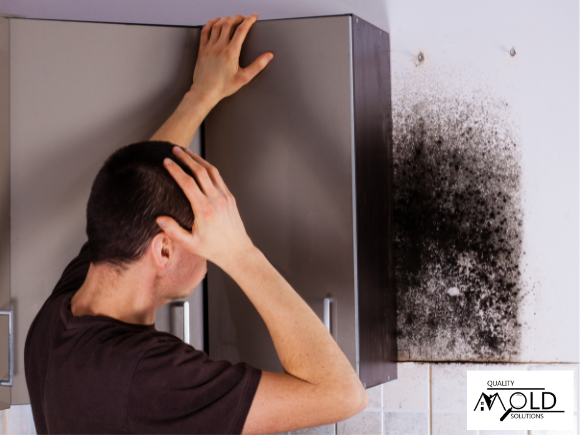Mold in your home is not just an unsightly nuisance; it poses serious health risks that can affect the well-being of your entire family. Understanding these hidden dangers and knowing how to address house mold can help you create a safer and healthier living environment.
Health Risks Associated with Mold Exposure
When mold grows in your home, it releases tiny spores into the air. These spores can be easily inhaled, leading to a range of health issues, especially for individuals with mold allergies, asthma, or weakened immune systems. Here are some of the primary health risks associated with mold exposure:
- Allergic Reactions
- House mold can trigger allergic reactions, including sneezing, runny or stuffy nose, itchy eyes, and skin rashes. For those already allergic to mold, exposure can significantly worsen these symptoms.
- Respiratory Issues
- Inhaling mold spores can irritate the respiratory system, leading to coughing, wheezing, and shortness of breath. For people with asthma, mold exposure can trigger asthma attacks or exacerbate existing symptoms.
- Chronic Sinus Problems
- Prolonged exposure to mold in your home can lead to chronic sinus infections and other sinus-related issues. Symptoms may include nasal congestion, sinus headaches, and pressure around the nose and eyes.
- Weakened Immune System
- Individuals with compromised immune systems, such as the elderly, infants, and those undergoing medical treatments like chemotherapy, are more susceptible to infections caused by mold exposure.
- Toxic Mold Exposure
- Some molds produce mycotoxins, which are toxic substances that can cause severe health problems. Black mold (Stachybotrys chartarum) is one such mold that can lead to symptoms like fatigue, headaches, and even neurological issues in extreme cases.
How Mold Affects Your Family’s Well-Being
Mold in your home doesn’t just affect physical health; it can also impact your family’s overall well-being in several ways:
- Mental Health
- Living in a mold-infested environment can cause stress and anxiety. Constant worry about health risks and the persistent presence of mold can affect mental health and reduce overall quality of life.
- Sleep Disturbances
- Allergies and respiratory issues caused by house mold can disrupt sleep, leading to fatigue and decreased productivity. Poor sleep quality can have a cascading effect on mood and daily functioning.
- Financial Burden
- Addressing mold problems can be costly, especially if the mold has spread extensively. The financial strain of mold remediation and potential medical expenses can add to the stress and anxiety of dealing with mold in your home.
Preventing and Addressing House Mold
To protect your family from the dangers of mold, it’s essential to take proactive steps in preventing and addressing house mold. Here are some tips:
- Control Moisture Levels
- Mold thrives in damp environments. Keep humidity levels in your home between 30% and 50% using dehumidifiers and air conditioners. Fix any leaks in roofs, walls, and plumbing promptly.
- Ensure Proper Ventilation
- Use exhaust fans in bathrooms, kitchens, and laundry rooms to reduce moisture levels. Open windows when possible to improve air circulation.
- Regular Cleaning and Maintenance
- Clean and dry areas prone to moisture, such as bathrooms and basements, regularly. Use mold-killing cleaning products to prevent mold growth.
- Inspect for Mold Regularly
- Conduct regular inspections for signs of mold, especially in hidden areas like behind appliances and inside closets. Look for discoloration, musty odors, and water stains.
- Professional Mold Inspection and Remediation
- If you suspect a mold problem, contact a professional mold inspection and remediation service. Experts can identify the extent of mold growth and provide effective solutions for removal and prevention.



